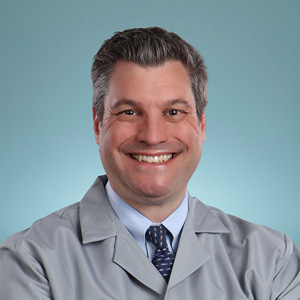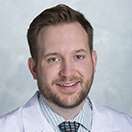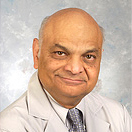Peter Hulick, MD | Michael Caplan, MD | Mark Dunnenberger, PharmD | Karen Kaul, MD, PhD | Janardan Khandekar, MD | Jianfeng Xu, DrPH
Peter Hulick, MD, Director of the Mark R. Neaman Center for Personalized Medicine; Division Head, Center for Medical Genetics
 Peter J. Hulick is the Director of the Neaman Center for Personalized Medicine. He is also a Division Head and a medical geneticist at the NorthShore University HealthSystem Center for Medical Genetics and a Clinical Assistant Professor at the University of Chicago Pritzker School of Medicine.
Peter J. Hulick is the Director of the Neaman Center for Personalized Medicine. He is also a Division Head and a medical geneticist at the NorthShore University HealthSystem Center for Medical Genetics and a Clinical Assistant Professor at the University of Chicago Pritzker School of Medicine.
Dr. Hulick completed his clinical medical genetics residency at Harvard Medical School where his clinical concentrations included connective tissue diseases such as Marfan syndrome and Ehlers-Danlos syndrome while also maintaining a general genetics clinic.
His research during his Harvard genetics training consisted of identifying potential biomarkers of kidney cancer through gene expression profiling of tumor cell lines and the development of a clinical assay to detect kidney cancer at an early stage. He also studied the biological function of the folliculin gene product which, when mutated, causes the kidney cancer predisposition syndrome Birt-Hogg-Dube. During his medical genetics residency, he graduated with a masters in medical science degree from the Harvard Medical Scholars in Clinical Science program which trains individuals for careers in clinical research.
Dr. Hulick received his undergraduate degree in biology from Northwestern University in Evanston, IL and his medical degree from Jefferson Medical College, in Philadelphia, PA. He completed an internal medicine residency at Mayo Clinic, Jacksonville, FL before pursuing his clinical medical genetics training in Boston. Dr. Hulick is board certified in Internal Medicine and Clinical Genetics.
His clinical interests, in addition to general genetic syndromes, include connective tissue disease, cardiovascular, and kidney cancer genetics.
Michael Caplan, MD; Chairman, Department of Pediatrics; Chief Scientific Officer, Research Institute

Dr. Caplan is Chairman of the Department of Pediatrics at NorthShore and Clinical Professor of Pediatrics at the University of Chicago, Pritzker School of Medicine. He is also the Chief Scientific Officer, Research Institute, NorthShore University HealthSystem. A graduate of the University of Illinois, and the University of Chicago with honors from the Pritzker School of Medicine, he completed his residency and neonatal-perinatal fellowship at Northwestern University Medical School and Ann & Robert H. Lurie Children’s Hospital of Chicago. Dr. Caplan joined the faculty of NorthShore in 1989 in the Division of Neonatology and Department of Pediatrics where he has served for the last 23 years.
Dr. Caplan is an internationally acclaimed physician-scientist in the area of neonatal necrotizing enterocolitis (NEC), a gastrointestinal disorder that affects 10% of newborns born weighing less than 3.5 pounds. He has published extensively on this subject, and has received multiple grants from the National Institutes of Health and the March of Dimes for his work investigating the causes and potential cures of this devastating disease. He lectures frequently on this subject, and he is currently working to test the potential effect of probiotics for the prevention of NEC.
Dr. Caplan has served as Program Chair for the Neonatal Network of the National Institutes of Child Health and Disease, a government-sponsored group of 16 neonatal intensive care units developing state-of-the-art clinical research to improve the lives of premature neonates. In addition, Dr. Caplan served as a member of an NIH study section that reviews grant proposals designed to investigate the causes and potential treatments of intestinal diseases such as Crohn’s disease.
Mark Dunnenberger, PharmD, Director of Pharmacogenomics

Mark Dunnenberger is the Director of Pharmacogenomics at NorthShore University HealthSystem Center for Molecular Medicine. He received his PharmD from the University of Tennessee, trained in pharmacy practice at Mission Health in Asheville, NC, and completed a second year pharmacy residency in clinical pharmacogenetics at St Jude Children’s Research Hospital. In 2014 he received the Presidential Trainee Award from the American Society for Clinical Pharmacology and Therapeutics for his work on the clinical implementation of pharmacogenetics while at St. Jude. He is also a board certified pharmacotherapy specialist.
Dr. Dunnenberger is a member of the Clinical Pharmacogenetics Implementation Consortium (CPIC). CPIC is an international organization that publishes guidelines on how to use pharmacogenetic data in clinical practice. He has co-authored several CPIC guidelines including the guidelines for CYP2D6/codeine and HLA-B/carbamazepine. His research interests include translating pharmacogenomics into clinical practice, developing information technology solutions for delivering genetic information to both clinicians and patients in a practical manner, and evaluating methods for educating healthcare professionals about pharmacogenetics.
Karen Kaul, MD, PHD; Chair, Department of Pathology and Laboratory Medicine

Dr. Karen Kaul is Chair, Department of Pathology and Laboratory Medicine at NorthShore University HealthSystem, Clinical Professor of Pathology at the University of Chicago Pritzker School of Medicine, and holds the Duckworth family Chair at NorthShore for her work in molecular pathology. Dr. Kaul is board-certified in Anatomic Pathology, and also Molecular Genetic Pathology, and has devoted her career to development of the field of molecular pathology.
Dr. Kaul established one of the first clinical laboratories to perform DNA-based diagnostic testing in 1987, and established the Division of Molecular Diagnostics at NorthShore. Dr. Kaul's lab has been involved in the development of many in-house and commercial assays for rapid detection of pathogens and drug resistance microbial species, cancer biomarkers, tumor cells and more.
She is a past president of the Association for Molecular Pathology, and served as Editor in Chief of the Journal of Molecular Diagnostics until 2010. She has been significantly involved in molecular diagnostics efforts, education, regulation, and standardization of the practice of molecular pathology for several professional societies. She is the recipient of the 2008 Association for Molecular Pathology Leadership Award. In 2011, she was appointed as a Trustee of the American Board of Pathology. She was an ELAM (Executive Leadership in Academic Medicine) fellow in 2011-2012. In October 2012, she was named Chair of the Department of Pathology and Laboratory Medicine at NorthShore.
Janardan Dinkar Khandekar, MD, Director of Innovation and Education for the Neaman Center for Personalized Medicine

Dr. Janardan Khandekar is the Director of Innovation and Education for the Neaman Center for Personalized Medicine, and also a Clinical Professor at the University of Chicago Pritzker School of Medicine. He holds the Board of Directors/Janardan Khandekar, MD, Chair in Molecular Medicine. In addition, he is the Chairman of the Medical Advisory Committee for the NorthShore Kellogg Cancer Center.
Board-certified in Internal Medicine and Medical Oncology, Dr. Khandekar obtained his MBBS, MD from the University of Indore, India. His notable postgraduate career includes a Medical council of Canada Fellowship at the University of Montreal; a Fellowship in Oncology at Tufts University Hospitals; sabbaticals in Molecular Biology and Molecular Genetics at both Northwestern University and Baylor; and visiting Fellowship at the Weitzman Institute in Israel.
Dr. Khandekar was the founding Head of the Division of Medical Oncology, appointed Director of the Kellogg Cancer Centers and Kellogg/Scanlon endowed chair, serving in those roles for over 25 years. He also served as Chairman of the Department of Medicine at NorthShore and Professor of Medicine. During his tenure, the department had an unprecedented growth in terms of establishing new divisions, programs, recruitment of faculty and researchers. He also trained over 500 residents during this period and trained 10 physicians from India in oncology through a fellowship established in his father’s memory and is a mentor to foreign physicians through American Society of Oncology. He has authored /coauthored 116 full length peer reviewed papers and over 60 other publications.
Jianfeng Xu, DrPH, is Vice President of Translational Research at NorthShore University HealthSystem (NorthShore) and holds the Ellrodt-Schweighauser Family Chair of Cancer Genomic Research. Dr. Xu is also Director of the Program for Personalized Cancer Care (PPCC) within the Mark R. Neaman Center for Personalized Medicine at NorthShore. The mission of the PPCC is to improve the quality of cancer care by offering proactive and total personalized cancer care, from cancer prevention and screening, to customized treatment of localized and advanced cancer.
Dr. Xu joined NorthShore in the fall of 2014. His previous position was at Wake Forest University Medical Center, where he was Professor of Genomics and Personalized Medicine Research, Epidemiology, Cancer Biology and Urology, as well as the Director of the Center for Cancer Genomics. He is an internationally known genetic epidemiologist and genomic translational researcher, and has been working on genetic studies of cancer and other diseases for over 20 years. Dr. Xu has received multiple grants from the National Institutes of Health and has published over 300 papers in such journals as the New England Journal of Medicine and Nature Genetics. His primary research interests are 1) discovery of associations for cancer risk and progression with inherited genetic variations as well as somatic genetic and epigenetic changes in tumors, and 2) application of genetic research findings for risk prediction, and genomic-targeted prevention, diagnosis, and treatment of cancer.
Dr. Xu received his medical training at Shanghai Medical University and genetic epidemiology training at Johns Hopkins School of Public Health.